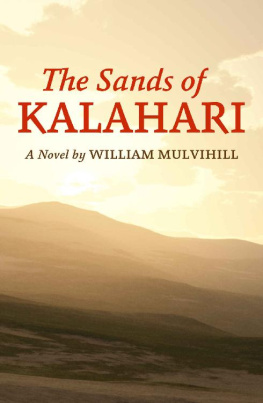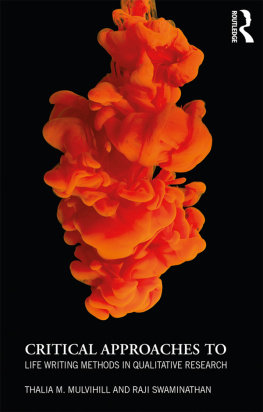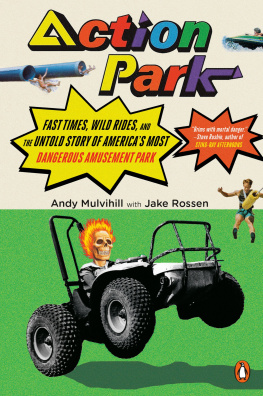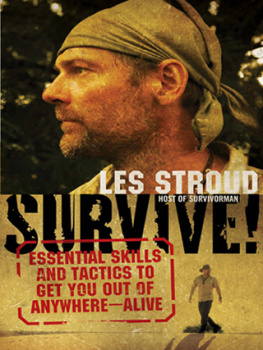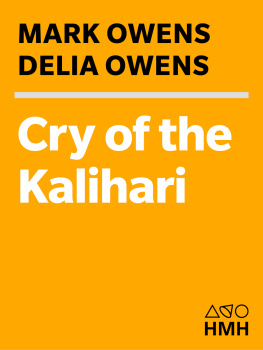William Mulvihill - The Sands of Kalahari
Here you can read online William Mulvihill - The Sands of Kalahari full text of the book (entire story) in english for free. Download pdf and epub, get meaning, cover and reviews about this ebook. year: 2015, publisher: NightHawk Books, genre: Detective and thriller. Description of the work, (preface) as well as reviews are available. Best literature library LitArk.com created for fans of good reading and offers a wide selection of genres:
Romance novel
Science fiction
Adventure
Detective
Science
History
Home and family
Prose
Art
Politics
Computer
Non-fiction
Religion
Business
Children
Humor
Choose a favorite category and find really read worthwhile books. Enjoy immersion in the world of imagination, feel the emotions of the characters or learn something new for yourself, make an fascinating discovery.
- Book:The Sands of Kalahari
- Author:
- Publisher:NightHawk Books
- Genre:
- Year:2015
- Rating:4 / 5
- Favourites:Add to favourites
- Your mark:
- 80
- 1
- 2
- 3
- 4
- 5
The Sands of Kalahari: summary, description and annotation
We offer to read an annotation, description, summary or preface (depends on what the author of the book "The Sands of Kalahari" wrote himself). If you haven't found the necessary information about the book — write in the comments, we will try to find it.
The Sands of Kalahari — read online for free the complete book (whole text) full work
Below is the text of the book, divided by pages. System saving the place of the last page read, allows you to conveniently read the book "The Sands of Kalahari" online for free, without having to search again every time where you left off. Put a bookmark, and you can go to the page where you finished reading at any time.
Font size:
Interval:
Bookmark:

A Novel by WILLIAM MULVIHILL
Coverand kindle version copyright 2015 by NightHawk Books, Steve W. Chadde, Series Editor. All names,characters, and events in this book are fictional, and anyresemblance which may seem to exist to real persons is purelycoincidental.
TheSands of Kalahari was originally publishedin 1960 by G. P. Putnams Sons, New York.
NightHawkBooks are a collection of noir detective, mystery, and adventure stories,largely forgotten on dusty bookshelves but often surprisinglywell-writtenand always entertaining! We hope you enjoy them asmuch as we enjoy making them available once again as kindle ebooks.
Each bookin the series is meticulously reviewed to ensure a quality readingexperience either on paper or on your kindle device.
* * *
Novels by William Mulvihill
THE SANDS OF KALAHARI
THE MANTRACKERS
FIRE MISSION
* * *
For Nancy and Mary Ann
Fly over South-West Africa and you will seedesert: a third of a million square miles of sand. From the Angolanborder south to the Orange River no water runs regularly into thesea; the beach stretches a hundred miles inland and there is almostno rain: the Namib Desert.
In the interior great escarpments rise andthere are nameless bleak mountains and great empty savannas, desolateand dry. Then another desert, the Kalahari, the Great Thirstland,larger than Texas. Southward is five hundred square miles of parchedbushveld.
In all this vastness there are towns, ranches,mines and settlements but they are far apart, like atolls dotting avast ocean.
DURING the night Detjens died andthe rest of them were almost glad. The crash had broken his back andfractured his skull and he had died without once gainingconsciousness. Now there were six of them, five men and a woman,standing around the blanket-wrapped body in the early morning heat.
When the plane crashed the day before, Detjens wasthe only one hurt. He was unknown to the rest of them as they were toeach other, but his slow dying had drawn them together around him.Now they felt that they had known each other for a long, long time.They had nursed him, prayed for him, sat with him through the longblack night. Because of him they had stayed near the wrecked plane,not moving; because of him they had not tried to reach the low blackmountain off on the horizon. He was dead now and they were free andthey stood around the body, waiting. They were nervous, strained,aware of each others impatience. Some of them stared at thebody and then at the distant hills. Sturdevant, the pilot, clearedhis throat.
I think we should bury him here, hesaid without looking up. Right by the plane. No sense in goingoff anywhere else. They agreed. If Detjens was buried where helay it meant that Sturdevant was planning to move, to reach thehills, the black mountain far away. And he was their leader. Theystudied him for an instant: a tall rangy man in his late thirtieswith a sharp, tough face. He was a redhead, an ex-fighter pilot, aSouth African. A few days ago they hadnt known him; now theirlives depended upon his judgment. He looked up and past them,studying the awesome desert, slowly rubbing the red stubble thatcovered his lean jaw. He adjusted his peaked cap and slapped at a flythat settled on his bare leg. He wore a brown sport shirt, khakishorts and rubber-soled shoes. They waited for him to speak but heturned and walked away studying the pieces of debris that lay aroundthe smashed plane. He picked up a curved piece of aluminum and cameback to them, knelt in the sand and began to dig. The semicirclebroke up. The woman turned away, walked wearily to the tiltedfuselage and went through the low door. The men found cans and piecesof metal and joined Sturdevant.
The pilot studied the other four men as the gravegrew deeper. His responsibility
Grimmelmann was the eldest, old enough to be thefather of all of them, a white-haired German who walked with a slightlimp and carried a heavy, rubber-tipped cane. He was in his seventiesbut still strong. When they got on the plane back in Mossemedes hehad been wearing a heavy, belt-in-the-back European suit and a stiffwhite collar. Instead of a suitcase he had carried a cheap bulgingbrief case, which Sturdevant always associated with Germans andrefugees and displaced persons. The old man was heading for Windhoek,seeking a brother who owned a vast sheep ranch. He spoke English in aslow, precise manner like an old schoolmaster. Digging in the sandnow he was in his shirt sleeves and from the depths of the brief casehe had found an old peaked hat of military cut which almost coveredhis wispy white hair.
Jefferson Smith was the youngest, probably in hislate twenties. He was an American, a Negro, a professor and a scholardoing some kind of research on Africa. Tall and graceful with an easysmile. When Sturdevant had first seen him he was carrying two heavysuitcases and his light seersucker suit was damp with sweat. He wasalert and talkative, his voice deep and pleasant. Sturdevant wasntused to him yet; the other Negroes who had been in his plane weremine boys, laborers. It was difficult to realize that Smith was anAmerican with a lot of money and a lot of education.
Next to the Negro, scooping dirt out of the holewith a tin can, was Mike Bain, another American, in his latethirties. A good guy, Sturdevant mused, but one hed have towatch. He was flabby and soft and there was a nonchalance in hismovements and remarks. Grimmelmann was old but he was strong andhigh-spirited; Bain was neither. He was shorter than Smith, under sixfeet, and good-looking in a haggard way: a face that had seen a lotof good times and a lot of bad times. Sturdevant knew he was anAmerican engineer whod been knocking around in West Africa forsome years.
The last man was OBrien, big, handsome,capable. He stabbed into the earth with a sharp piece of metal,loosening it for the others and then scooping it out himself with aflat piece of plywood. He was hatless and the heavy stubble of hisbeard merged with his raven-black hair. He, too, was American, closeto Sturdevants age, and he had come to Africa to hunt. Alongwith a big leather suitcase he had carried two expensive huntingrifles and a pair of binoculars. He was taller than the pilot andheavier through the chest and shoulders. When they had met back inAngola the big man had been wearing a bush jacket and a wide-brimmedhat. When they shook hands Sturdevant had sensed a latent strength, apower surpassing his own. He was glad OBrien was with them.
The grave grew deeper. They did not speak, forthere was nothing to say; a man had died and he had to be buried.They dug and grunted and were silent. At last they broke through thegravel-filled hardpan and the earth became softer.
Sturdevant brushed away a trickle of sweat fromhis upper lip. Very soon now, unless they found water, they too wouldbe shriveled and dead. There was water in the plane, almost two tinsof it, but when that was gone
There wasnt going to be any search plane.
He told them a few hours after the crash. It hadbeen a private flight, unrecorded. He had agreed to take them toSwakopmund and they had left Angola without ceremony, a lone planewinging south over the dry, barren land. There would be no searchplane, for no one knew that they were lost. They had to savethemselves and they had already wasted one precious day.
People died in deserts. It was a strange way todie in the twentieth century but it happened. The world was stillfilled with great blank spaces where men died for uncomplicatedreasons: thirst, hunger, heat, cold. Not long ago hed read ina newspaper about a party of geologists who had come upon an awesomesight in the Libyan desert. A World War II American bomber sitting onits belly in the drifting sand. It had sat there undisturbed for overfifteen years; the logbooks and clothing and guns were untouched;some water jugs were still full. There was no sign of the crew butinvestigators believed that they had left the plane seeking water anddied in the endless desert, four hundred miles from the sea.
Font size:
Interval:
Bookmark:
Similar books «The Sands of Kalahari»
Look at similar books to The Sands of Kalahari. We have selected literature similar in name and meaning in the hope of providing readers with more options to find new, interesting, not yet read works.
Discussion, reviews of the book The Sands of Kalahari and just readers' own opinions. Leave your comments, write what you think about the work, its meaning or the main characters. Specify what exactly you liked and what you didn't like, and why you think so.

